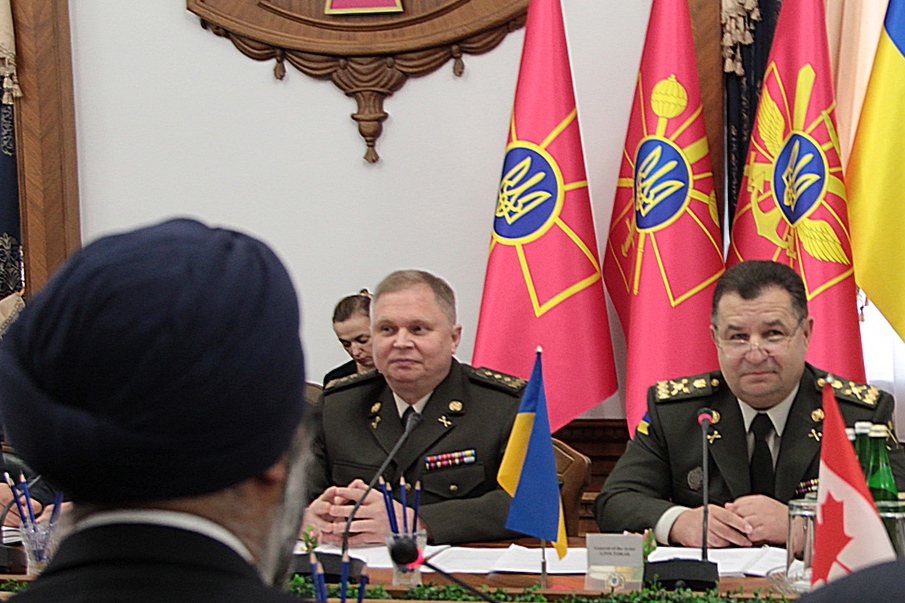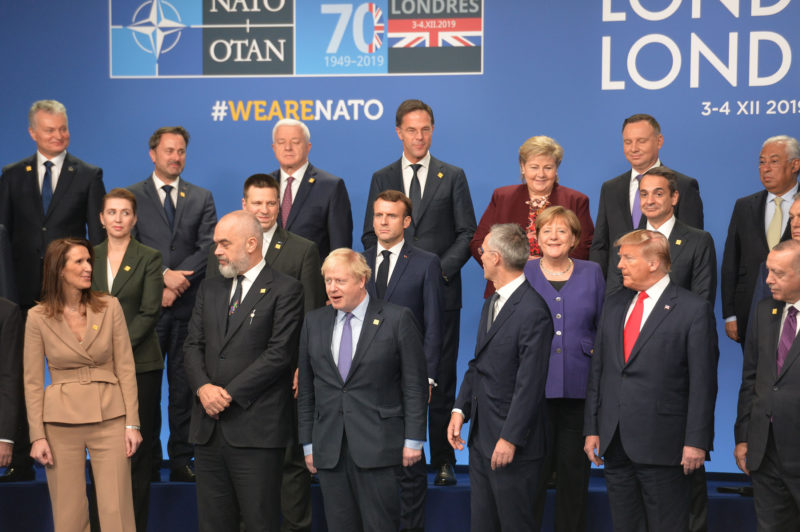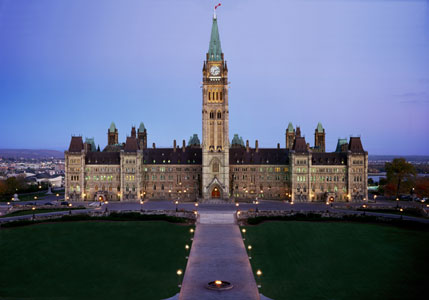On February 24th 2023, the anniversary of the Russian invasion of Ukraine, Prime Minister Justin Trudeau indicated that “Canada and Canadians will stand by the Ukrainian people for as long as it takes.” But other than rhetoric, how has Canada contributed to the Ukrainian humanitarian and military effort?
Contributions can take many forms, such as hosting refugees. Generally speaking most aid provided by different countries is classified as financial aid, humanitarian aid or military assistance. Given Canada’s reluctance to invest in its defence budget, one would expect that its support would take a financial or humanitarian form: this may, however, not be the case. Furthermore, in order to evaluate Canada’s contribution, it should be assessed in comparison with that of other countries
In terms of economic or financial assistance, Global Affairs Canada indicates that since January of 2022, Canada has provided Ukraine with $1.95 billion in assistance. It is also in the process of modernizing the Canada-Ukraine Free Trade Agreement.
In terms of humanitarian assistance, Canada has committed $320 million to the United Nations, Red Cross, and other non-governmental partners, in order to provide “emergency health services, protection, support to displaced populations and essential life-saving services such as shelter, water and sanitation and food”. This does not include the contributions from the Canada-Ukraine Foundation, which has raised “over $52 million from 72,000 donors across Canada” and used these funds to deliver food, medicine, hospital generators, ambulances, personal protective equipment, stoves, beds and mattresses, firefighting gear and more.
Surprisingly, it is in the military domain where Canada shines. Rachel Aiello, Senior Digital Parliamentary Reporter at CTVNews reports that “Canada has committed more than $1 billion in military aid” since the Russian invasion of Ukraine. Some of these contributions include:
- Eight Leopard 2 battle tanks (4 of which have already been delivered);
- A Taurus Armoured Recovery Vehicle (ARV)
- 200 “Senator” armoured vehicles;
- A US made surface-to-air missile system;
- Four M77 Howitzers, along with barrels to maintain them as well as ammunition;
- Anti-tank weapons: 100 Carl-Gustaf M2 anti-tank weapons systems, 4200 rocket launchers and 7000 hand grenades
- Smaller contributions: drone cameras, small arms and ammunition, personal protective equipment, winter gear, etc.
Canada also contributes to Ukraine’s military operations, mainly through Operation UNIFIER. Since it was launched in 2015, Canada has trained over 35,000 Ukrainian military personnel in battlefield tactics. Currently, Canadians are training Ukrainian combat engineers (“sappers”) to find and defuse hidden trip wires and booby traps left by the Russians. They are also doing infantry training in the UK and tank training in Poland.
But how do Canada’s contributions compare to those of other countries? Is Canada punching below its weight? Or is Canada a large contributor, given its size? To answer this question, an excellent source of information is the Kiel Institute for the World Economy’s “Ukraine Support Tracker.” In a series of graphs the Institute quantifies and compares support from each country for the three main types of contribution.
For total bilateral assistance (excluding the taking in of refugees), Canada is in fifth place, behind the U.S, EU Institutions, the UK, and Germany. It remains ahead of all other European countries, including Poland. If contributions are measured as a percent of GDP, Canada drops to ninth place. However, the countries that jump ahead are those most threatened by Russia – Latvia, Lithuania, Poland and Bulgaria.
In terms of comparing bilateral financial assistance (including loans), Canada is an extremely strong supporter of Ukraine, behind only EU Institutions and the U.S. Also, perhaps surprisingly, Canada is fifth in terms of military assistance. The US, the UK, Poland and Germany are the most heavily invested in military terms. Even if only heavy military equipment commitments are considered, Canada is ahead of most of its peers in eighth place.
What can be concluded from the Kiel Insitute’s country comparison? Canada is clearly punching above its weight. Canada is one of Ukraine’s strongest supporters.
Photo: Ministers of Defence of Ukraine and Canada discuss prospects of bilateral cooperation by Vitaliy Soloniy (2017), via Wikimedia Commons. Licensed under CC BY-SA 2.0.
Disclaimer: Any views or opinions expressed in articles are solely those of the author and do not necessarily represent the views of the NATO Association of Canada.




